With so much continued uncertainty in the market, its no secret financing can be difficult. For many aspiring homeowners, the path to securing a mortgage can feel like a daunting and convoluted process. With strict requirements such as W-2s, tax returns, and solid credit scores, traditional home loan programs often exclude individuals with unique financial situations.
But what if there was a way for those with irregular income or non-traditional work situations to secure a home loan? Well my friends there surely is… it’s called Bank Statement Loans. With a little more flexibility that most loans, this option could open that door to homeownership you’ve been dreaming of. So what exactly are they?
What Are Bank Statement Loans?
Bank statement loans are a type of non-QM (non-qualified mortgage) loan designed for self-employed individuals, freelancers, gig economy workers, or those with irregular income sources. Rather than relying on traditional documentation like tax returns or W-2 forms, bank statement loans use a borrower’s bank statements—typically over the last 12 to 24 months—as the primary means of verifying income.
This alternative documentation allows borrowers to demonstrate their ability to repay a loan, even if their income doesn’t neatly fit into the typical patterns required by conventional lenders. Bank statement loans give greater flexibility to those who might have difficulty showing proof of income through standard methods.
Why Are Bank Statement Loans Helpful for Homebuyers?
Great for Self-Employed Individuals: One of the primary groups that benefit from bank statement loans is self-employed workers. Freelancers, consultants, and small business owners often have fluctuating income, and their tax returns may not accurately reflect the full picture of their financial health. With bank statement loans, lenders can assess a person’s ability to repay a loan based on actual deposits into their bank accounts, providing a more accurate view of income.
Flexible Income Verification: For individuals with irregular income sources (like commission-based work, tips, or seasonal employment), traditional loan applications can be challenging. Bank statement loans allow lenders to look at consistent deposits over time, providing a more nuanced and flexible way to assess financial stability.
Reduced Documentation Requirements: If you’ve ever applied for a traditional mortgage, you know the mountains of paperwork involved. Tax returns, pay stubs, credit reports, and other forms can be burdensome. Bank statement loans simplify this process by focusing on your bank account history rather than requiring detailed financial records. This means less paperwork and faster approval times.
Opens Doors for Non-Traditional Workers: As the workforce becomes increasingly diverse, more individuals are engaging in non-traditional work arrangements. Gig economy workers, consultants, and contractors often struggle to prove steady income with traditional lending methods. Bank statement loans provide an opportunity for these individuals to qualify for a mortgage without needing to jump through the hoops of traditional documentation.
Who Can Benefit from a Bank Statement Loan?
- Self-Employed Professionals
- Freelancers and Contractors
- Investors
- Those with Limited Credit History
How to Qualify for a Bank Statement Loan
To qualify for a bank statement loan, you’ll typically need to:
- Provide 12-24 months of personal and/or business bank statements.
- Show a consistent pattern of income (e.g., consistent deposits that demonstrate your ability to repay the loan).
- Meet the lender’s minimum credit score requirements (which can vary but tend to be more flexible than traditional loans).
- Demonstrate sufficient cash reserves for a down payment and closing costs.
Conclusion
Bank statement loans offer a powerful solution for individuals who may struggle to meet the rigid requirements of traditional mortgages. By using bank statements instead of tax returns or W-2s, these loans provide a more flexible and accessible option for self-employed individuals, freelancers, gig workers, and others with non-traditional income sources. While they may come with higher interest rates or other conditions, they can serve as a crucial tool for homebuyers who are otherwise locked out of conventional lending.
If you’re considering applying for a mortgage but feel that traditional financing options won’t work for you, it might be worth exploring whether a bank statement loan is the right path toward securing your dream home.






